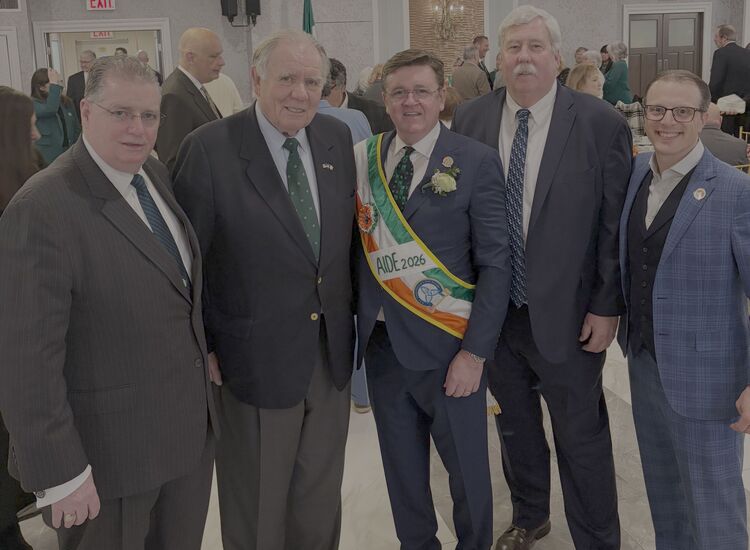Senator Robert F. Kennedy addresses a crowd at San Fernando Valley State College, Calif., during his 1968 presidential campaign.
By Peter McDermott
“I write about TV. I write about politics. I should have known about it.” says Joan Walsh. “Why is this history lost to us?”
The Nation writer was referring to the week in February 1968 that Harry Belafonte was guest host on "The Tonight Show" at the invitation of Johnny Carson.
Dr. Martin Luther King Jr. and Senator Robert Kennedy were among the guests of the superstar entertainer. King was assassinated just a few weeks later, on April 4. After the funeral in Atlanta, Belafonte rejoined the Kennedy presidential campaign, which was ended by another assassination two months later.

Harry Belafonte pictured with film stars Sidney Poitier, left, and Charlton Heston, right, at the Lincoln Memorial on the day of the March on Washington, Aug. 28, 1963.
It was almost lost, maybe, almost forgotten, but thanks to the efforts of producer Walsh and her colleagues it's told in the very watchable “The Sit-In: Harry Belafonte hosts the Tonight Show” (available on NBC’s streaming service Peacock). The man himself, his daughter, Gina Belafonte, two guests from that week, Buffy Sainte-Marie and Petula Clark, and preeminent historian of the movement for civil rights Taylor Branch are among those who recall and reflect on that moment in television history.
Only parts of the Belafonte week have survived in NBC's own archives (Carson was upset to hear later that his shows were routinely taped over through 1971); but Long Islander Phil Gries's vast treasure trove of taped material from radio and TV going back to the 1950s proved to be of great assistance to the documentary's makers.

Johnny Carson hosted "The Tonight Show Starring Johnny Carson" from 1962 through 1992.
Belafonte wanted to promote talent on the shows, and so not all the guests were superstars; a print ad listed one night’s lineup with the last-named needing further identification: “Paul Newman, Nipsey Russell, Dr. Martin Luther King, Leon Bibb (singer).”
It was Newman’s first ever talk-show appearance, we’re told, and he sat alongside folk music's Bibb, comedian Russell, Noble laureate King and Carson's longtime sidekick Ed McMahon.
“It was the most revolutionary thing that TV could have done at that time,” comments Questlove, who is a journalist and a member of the Roots, the in-house band on "The Tonight Show with Jimmy Fallon."
Belafonte may have long been a crossover superstar, a proven bestseller in the charts; and Black invisibility on the screen was becoming less of an issue by the late 1960s: Sidney Poitier was a major cinema star, while Bill Cosby had equal billing with Robert Culp on “I Spy” and for the first time in science fiction people of color were depicted as part of the future thanks to Nichelle Nicholls as Nyota Uhura on “Star Trek.”
But what was revolutionary about “The Tonight Show” during Feb. 5-9, 1968, was its showcasing of Belafonte’s vision of a multicultural, multiracial America.
Buffy Sainte-Marie says: “Harry was the heart and brains of a lot of things.”
Belafonte was at first resistant to the “Tonight Show" idea, which had come from Carson. He had been burned before. Back in 1960, he began a New York-based show to good reviews and ratings, but advertisers, worried about the South, didn’t want integrated dance routines and the like. The Harlem-born star walked away rather than give in.
Carson, however, had raised the issue of racial injustice on his show and now wanted a more in-depth treatment of it; he felt, though, that he wasn't perceived to have the necessary gravitas to do what he had in mind. And so, Belafonte finally agreed after being given control over the guest list for the week.
A month after his week-long stint, he made a triumphant return to “The Tonight Show” with a familiar story to tell Carson. A controversy broke out when Petula Clark placed her hand on his arm during a performance on her NBC special. The advertiser objected, with white Southern sensibilities being again the stated concern. This time it was Clark’s call to make, and she, too, refused to go along with the censors.

The main advertiser objected to Petula Clark putting her hand on Harry Belafonte's arm during her NBC special, which was filmed in 1968 not long after she was a guest during his stint as "The Tonight Show" host.
The mixing of politics and the arts is a theme of “The Sit-In.” Belafonte was the first among equals of the cadre of artists who’d put themselves in the service of the civil rights movement; he was also its most effective money-raiser, according to King.
The documentary suggests that the week showed that late-night TV could tackle "serious issues in a serious way" and that this was the forerunner of the political content we see today.
Speaking days after the Tet Offensive, King said that the country spent $500,000 for every Viet Cong soldier it killed but only $53 on anyone deemed to be living in poverty in the U.S.

Dr. Martin Luther King with a medal presented to him by Mayor Wagner of New York in 1964.
Kennedy spoke of America as a nation “of great wealth” and “of great poverty," and about how we tell “untruths about ourselves."
If there's a difference with today, it's that these men's vision and idealism didn't seem wild-eyed and outside of the mainstream. The country could maybe solve its deepest problems if it put its mind to it.
Branch says that King didn't make many national appearances on television and this was certainly the last one. Belafonte asked him directly about the threat hanging over him and he replied, echoing his comment on the eve of his assassination 53 years ago this Sunday, that longevity was a good thing, but said that how well you lived, the use to which you put your life, was as important as how long.









